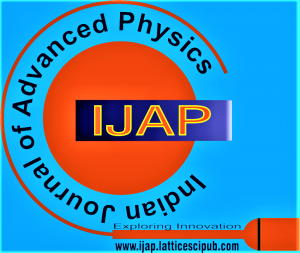![]()
A Brief Insight on Simulation and Space-Time
Reyan Kumar Sapkota
Reyan Kumar Sapkota, Department of Physics, St. Xavier’s College, Maitighar, Kathmandu, Nepal
Manuscript received on 29 September 2021 | Revised Manuscript received on 06 October 2021 | Manuscript Accepted on 15 October 2021 | Manuscript published on 30 October 2021 | PP: 6-10 | Volume-1 Issue-2, October 2021 | Retrieval Number:100.1/ijap.B1009101221 | DOI: 10.54105/ijap.B1009.101221
Open Access | Ethics and Policies | Cite | Mendeley | Indexing and Abstracting
© The Authors. Published by Lattice Science Publication (LSP). This is an open-access article under the CC-BY-NC-ND license (http://creativecommons.org/licenses/by-nc-nd/4.0/)
Abstract: Throughout most of human history, events and phenomena of interest have been characterized using space and time as their major characteristic dimensions, in either absolute or relative conceptualizations. Space–Time analysis seeks to understand when and where (and sometimes why) things occur. Ever since Einstein introduced this topic in his “General Theory of Relativity” (a remarkable feat) in 1915, many explanations, assumptions about Space-Time have been published. The authentic archives of Space-Time have helped us to predict and express the ongoing spatial phenomena of the Universe. The strangeness of Space-Time forces Young Researchers and Physicists to study upon the current predictions and theories, sink into the ocean of Space-Time mystery and come up with their own predictions. Besides Space-Time, the predictions about us being in a Simulation is a recent concept. Nick Bostrom’s trilemma “the Simulation argument”, published in 2003 led to the commencement of further oddly satisfying, real life evidence enriched, research papers. “Two possibilities exist: either we are alone in the Universe or we are not. Both are equally terrifying.”- by Andrew C Clarke. Throughout the paper, the Loaf Space-Time model and brief insights on other hypotheses about the structure of the mysterious space-time will be presented with insightful examples, authentic research outcomes, which will be linked with the Simulation Hypothesis.
Keywords: Worldlines, General Relativity, Lorentz Transformation, Planck’s Era, Inflation, Singularity, Matrix, Simulation, Continuum.
Scope of the Article: Astrophysics, Atmospheric and Space physics
